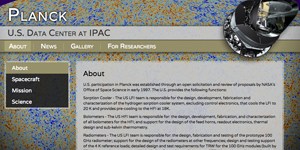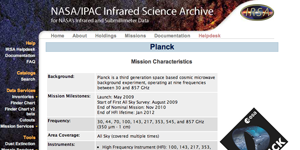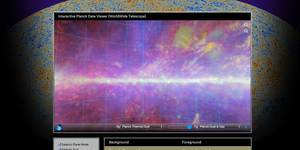-
Planck Team Awarded 2018 Gruber Cosmology Prize
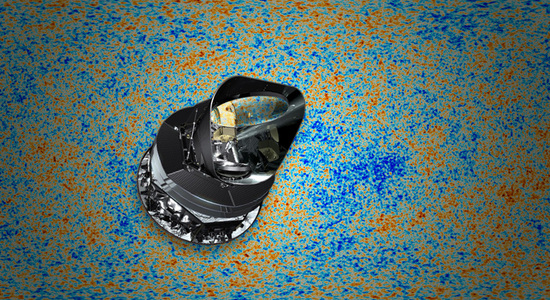 Learn MoreMay 11, 2018 • News Feature
Learn MoreMay 11, 2018 • News FeatureThe Planck team and its leaders Nazzareno Mandolesi and Jean-Loup Puget were awarded the 2018 Gruber Cosmology Prize, a recognition of groundbreaking work that provides new models that inspire and enable fundamental shifts in knowledge and culture.
-
Planck: First Stars Formed Later Than We Thought
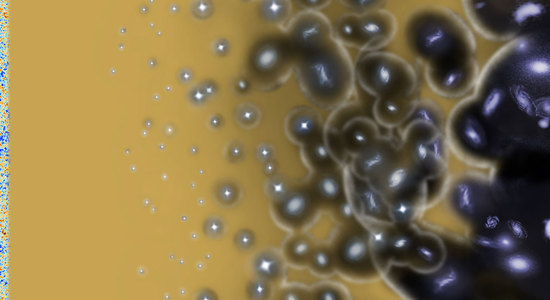 Learn MoreAugust 31, 2016 • News Feature
Learn MoreAugust 31, 2016 • News FeatureESA's Planck satellite, a mission with significant participation from NASA, has revealed that the first stars in the universe started forming later than previous observations of the cosmic microwave background indicated. The background is the most ancient light in the history of the cosmos, dating back to 380,000 years after the big bang.
-
A Mysterious Ring of Microwaves
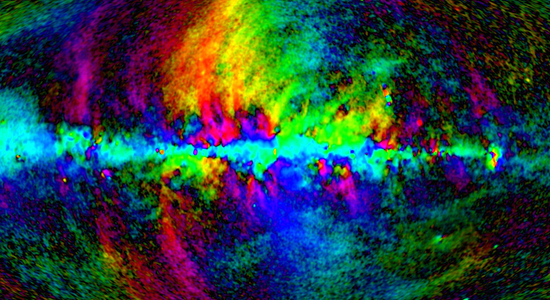 Learn MoreJune 6, 2016 • Featured Image
Learn MoreJune 6, 2016 • Featured ImageFifty years ago, astronomers discovered a mystery. They called it Loop I. Today, we still have not fully resolved the mystery of how this giant celestial structure formed but we do now have the best image of it, thanks to ESAs Planck satellite.
Loop I is a nearly circular formation that covers one third of the sky. In reality, it is probably a spherical bubble that stretches to more than 100 across, making it wider than 200 full Moons. Its absolute size, however, is extremely uncertain because astronomers do not know how close it is to us: estimates to the centre of the bubble vary from 400 light-years to 25 000 light-years.
-
Looking Within Our Universe For Something Beyond
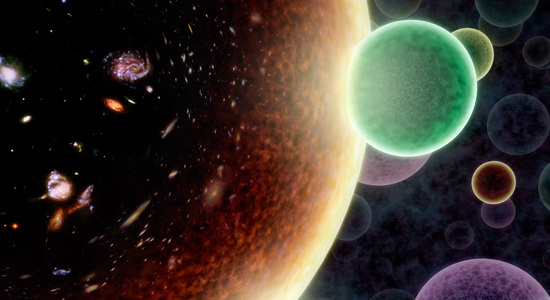 Learn MoreFebruary 22, 2016 • Feature
Learn MoreFebruary 22, 2016 • FeatureAlternate universes are everywhere in science fiction. Captain Kirk swapped places with his parallel-universe counterpart, a malicious version of himself, in an episode of Star Trek. In comic books, superheroes travel back and forth across a variety of different Earths. But do multiple universes really exist? Scientists continue to debate the concept and come up with new theories.
-
Herschel and Planck Honored with Space Systems Award
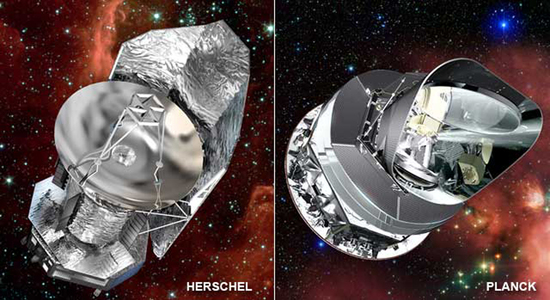 Learn MoreSeptember 3, 2015 • News Feature
Learn MoreSeptember 3, 2015 • News FeatureThe Herschel and Planck project teams are this year's recipients of the American Institute of Aeronautics and Astronautics (AIAA) Space Systems Award. Both space missions were led by the European Space Agency (ESA), with important participation from NASA.
This award is presented annually by the AIAA to recognize outstanding achievements in the architecture, analysis, design and implementation of space systems.

